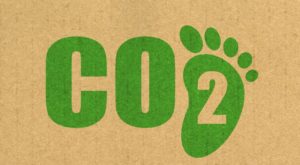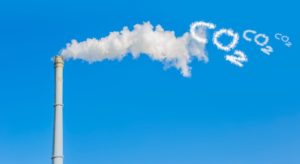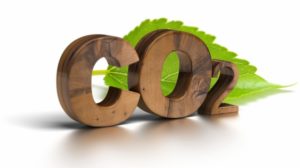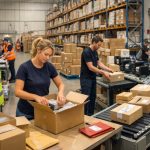Beer and meat lovers may find it hard to get their hands on their favourite products this fall. This is because a lack of carbon dioxide (CO2) causes complications for many breweries and food suppliers across the country.
Food companies are scrambling to find gas suppliers for fizz drinks, frozen meats, and pizzas. Some local breweries have even had to suspend operations at their facilities due to the shortage — which could mean fewer jobs and higher beer prices.
What is (CO2) Carbon Dioxide?

Carbon dioxide, known as CO2, is considered a natural greenhouse gas that, while harmless in small quantities, still contributes to climate change.
This is because plants and trees use carbon dioxide in photosynthesis for survival and because humans and animals rely on plants to suffice the food chain – carbon dioxide is essential to all life on Earth.
Therefore, while carbon dioxide is most easily recognized as a culprit greenhouse gas that is ultimately negative and contributes to global warming – it is important to remember the natural, vital elements of carbon dioxide and that life couldn’t exist without it.
Cold cuts rely on carbon dioxide for animal slaughtering, and other companies in the food business use carbon dioxide in its solid form as speciality equipment to prevent bacteria growth in their food – a new necessity due to the record heat the country and the rest of the world has seen this past summer.
What is the Cause of the Carbon Dioxide Shortage Threatens?

There is a reduction in carbon dioxide because different companies have multiple carbon dioxide suppliers. Are prone to gas pollution.
This caused massive delays in the production line and – in turn – prevented suppliers from providing the carbon dioxide needed to manufacture the products.
Although a lack of carbon dioxide is not unusual at this time of year, many people demand more beverages like beer when it’s hot outside – the depletion of natural sources accentuates this. In 2020, ethanol production fed the carbon dioxide supply, but as the pandemic forced many people to stop driving – many ethanol plants cut production.
Many companies around the world are feeling the impact of CO2 reduction on their business, and the worst part is that the situation is not likely to improve until the last quarter of the year.
Gas pollution affects businesses that use more carbon dioxide than ever before and is believed to be the biggest factor driving supply cuts and overall CO2 reductions. Contaminants such as hydrocarbons and benzene are not maintaining carbon dioxide’s purity, reducing the amount of usable carbon dioxide.
More plant shutdowns are expected throughout the summer and even into September. Even the closure of just one plant could result in the loss of 1,500 tonnes of carbon dioxide per day – adding to the deficit.
Summer is known as the fertilizer season, so these carbon dioxide suppliers’ plants can maximize the amount of carbon dioxide they can provide. Therefore, many of these suppliers are forced to close to deal with existing gas pollution. More potential supply is lost, which only further impacts all companies that rely on suppliers in short supply.
Ammonia production is a key sourcing route for CO2 production. Ammonia plants have traditionally been a major source of food-grade CO2. In contrast, investments in other sources of CO2 have increased over the past decade, including raw gas streams from chemical operations and bioethanol plants. Including ammonia being one of the largest. Sources.
In short, CO2 depletion will get worse before things start to look up. Paul Pfleger, communications director of the Compressed Gas Association trade group, has already said his association’s members are working hard to mitigate the latest threat and has warned retailers to avoid the full shortage. Do not take on any new clients during
How Does the Shortage of Carbon Dioxide Impact Our Business Society?

Businesses that rely on carbon dioxide, such as breweries, were already experiencing supply chain disruptions during the Covid-19 pandemic.
1. Unlike European countries and big cities like Paris, which had government funding to keep their businesses afloat during the health crisis, many small businesses in the United States were forced to close their doors due to insufficient demand permanently. It was done, which was beyond their control.
2. Now, ironically, people are quickly returning to their former, active social lives – but the lack of CO2 creates a new barrier for these businesses to achieve financial success after a slow experience during the pandemic.
3. The hospitality industry is most affected by CO2 depletion, as carbon dioxide is commonly used to keep perishables cool in the food and beverage industry.
4. Carbon dioxide is also used to extend the shelf life of carbonated beverages.
5. Creativity has helped some businesses develop viable alternatives when CO2 is in short supply, such as using dry ice and solid carbon dioxide to keep frozen food frozen during delivery. This was beneficial during many home grocery deliveries during the pandemic.
Ultimately, the lack of CO2 is bad for businesses because it ironically prevents them from regaining the long-awaited financial success after so many months of lack of business during the pandemic. In short, as long as CO2 is low – these businesses will continue to suffer.
The Solution to Co2 Shortage

While simply paying higher prices for CO2 and passing them on to consumers may be possible in the short term, it is not sustainable. Fortunately, steps can be taken to improve the situation.
First, brewers and food producers need to understand where their CO2 comes from. A common practice in the food and beverage industry is to source from a supplier, Which should be as close geographically as possible, as shipping is expensive. With food and beverages, it is also important to monitor storage and shipping quality to maintain freshness and prevent spoilage, which also increases costs. For these reasons, food manufacturers generally prefer to source locally, leading to a trend toward sole sourcing. Well, it works pretty well until there’s a crisis.
For example, manufacturers relying on Mississippi volcanoes as their sole source of CO2 were scrambling for new suppliers when the volcano’s CO2 reservoir became contaminated. But without pre-existing second or third suppliers, any disruption of this scale would take longer to recover, and manufacturers would either shut down overnight or pay exorbitant prices for the CO2 they emit. They need to prevent their products from being wasted.
In addition to visibility – knowing where your content is coming from and what the different pricing options are – put risk management and contingency plans in place and put them in place before disruptions occur, not after. Trying to figure out whether suddenly switching to a secondary or tertiary supplier is changing the quality or taste of your product, for example, is not By giving them some of your business in advance. It’s easy to forget that resilient supply chain management is only about developing relationships during non-crisis times so that you’re prepared to adapt when a crisis hits.
And while your backup suppliers may be a bit more expensive, it may be worth the investment in the short term to avoid even higher costs in the long term. Something you want to do in a panic in the middle of the night. So it would be wise to build relationships with backup suppliers, even if they are more expensive. When left without a supplier and paying ridiculously high prices to purchase CO2. (As some food companies have indeed done).
Author Profile

- Guest Blogger & Outreach Expert - Interested in Writing Blogs, Articles in Business Niche | News Journalist By Profession in the United Kingdom
Latest entries
 BusinessFebruary 17, 2026Why Online Shops Need a Fulfilment Centre?
BusinessFebruary 17, 2026Why Online Shops Need a Fulfilment Centre? LawJanuary 9, 2026Emily Windsor On The Judgment Calls Barristers Make Daily
LawJanuary 9, 2026Emily Windsor On The Judgment Calls Barristers Make Daily TravelJanuary 7, 2026Key Considerations When Installing Temporary Barriers for Roadworks
TravelJanuary 7, 2026Key Considerations When Installing Temporary Barriers for Roadworks BusinessNovember 21, 2025A Practical Guide to Using LMS Platforms for Better Onboarding
BusinessNovember 21, 2025A Practical Guide to Using LMS Platforms for Better Onboarding




